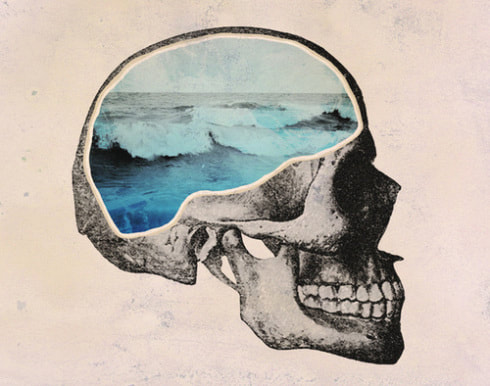|
With Eye Movement Desensitization Reprocessing (EMDR) therapy becoming popularized as a mental health treatment, I would like to spend some time with you today talking about the various mechanisms of trauma and how it affects our brain and its functioning.
A primary question I often receive centers on the question of "what is dissociation" and "will I dissociate during EMDR?". Dissociation is a survival oriented process. Dissociation is the way the brain has the ability to take something that is so overwhelming when a patient cannot escape a stressful event and/or is caught in the freeze response. So for example, there might be a child being hurt by a caregiver. Children are often too small to run away or fight back. They are the victim of the grown up. What the brain does during this type of scenario is that it allows the child to be there and not be there at the same time. In other words, the dissociative process of the brain is protecting the child so they can survive the experience. EMDR therapy helps patients move through the dissociative process, which is inherent in any kind of trauma. EMDR helps the patient move through the experience with a much reduced rate of emotional arousal. For the previous thirty years when trauma and Post Traumatic Stress Disorder (PTSD) were added to the Diagnostic Statistical Manual (DSM), it only categorized trauma as specifically large or “Big T” events. However, adverse life experiences or “little traumas” can also have a major impact on social, emotional, psychological, and physiological functioning. I personally choose not to define trauma by “little” or “big” events. What is significant to me in my professional opinion is how the smaller, more repetitive patterns of events become recorded in the nervous system and because of its repetition, these experiences gradually accumulate in the brain. Where in the brain does this all get stored? Please allow me to introduce to you, if you have not already learned about the amygdala. The amygdala is within the right hemisphere of the brain, known for responding to a heightened sense of arousal. The amygdala translates information that it receives from the other parts of the brain into an emotional response. This type of response can manifest in a variety of ways within the body (e.g. heightened blood pressure, more rapid breathing, blood moving from the central part of the body to the peripheral, and the release of adrenaline). In my next post, I will continue to discuss two key symptom behaviors that are congruent with trauma: avoidance and rumination. Stay tuned! |
AuthorAmy Pope-Latham, LCSW is a board certified mental health professional in Ponte Vedra Beach, FL. Archives
December 2022
Categories
All
|


 RSS Feed
RSS Feed